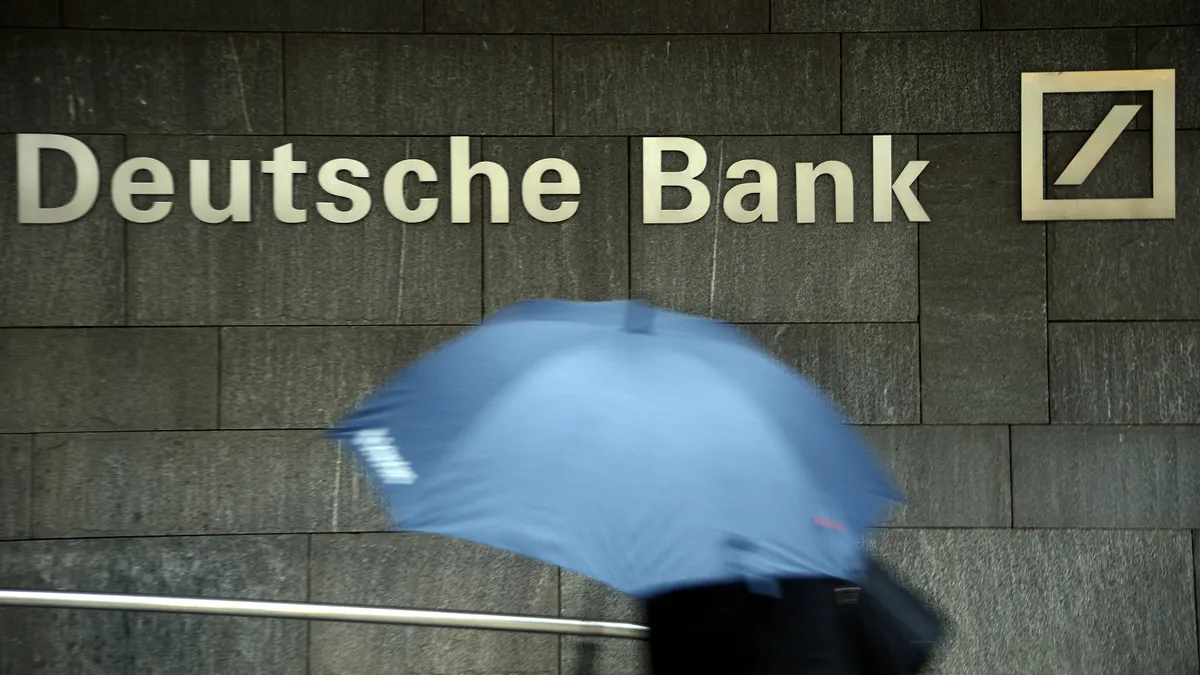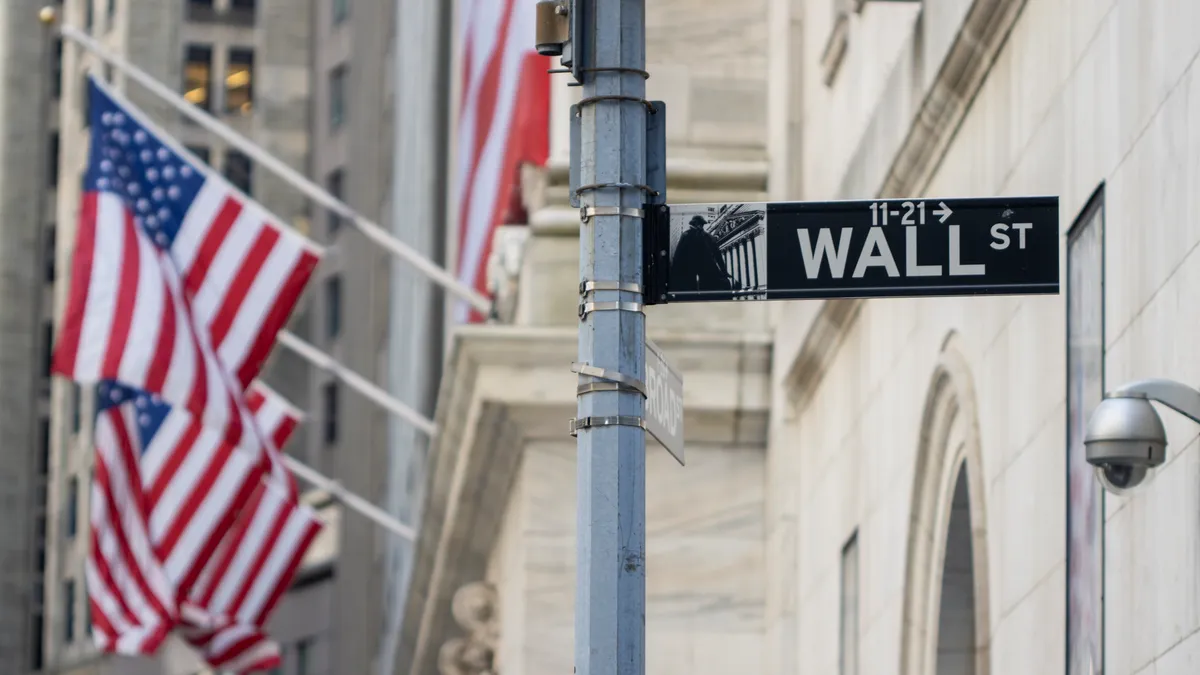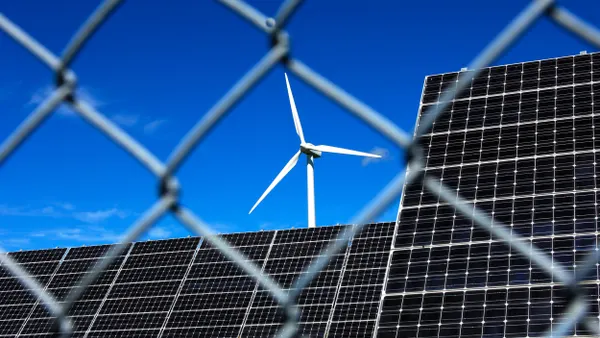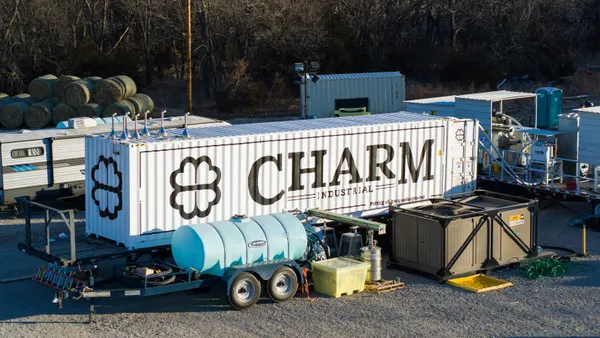Dive Brief:
- Deutsche Bank reaffirmed its commitment to reaching net-zero and decarbonizing the economy in its latest transition plan, as global banking peers have sought to recalibrate their public messaging around sustainability in the wake of increased political scrutiny.
- The German lender’s updated strategy, published last month, reiterated its target of achieving net-zero emissions across its scope 1, 2 and 3 categories by 2050 and hitting sectoral decarbonization targets for the eight most carbon-intensive sectors in its corporate loan portfolio in 2030 and 2050. Those sectors include oil and gas, power generation, automotives, steel, coal mining, cement, shipping and commercial aviation.
- “Regardless of current developments, we remain committed to our path to net-zero,” Deutsche Bank Chief Sustainability Officer Jörg Eigendorf said in the update. “We regard it not only as a social responsibility but also as part of a prudent risk management practice as well as a business opportunity.”
Dive Insight:
Eigendorf wrote in his introductory note that though climate policies, regulations and reporting standards have strengthened over time — with initiatives like the European Union’s Corporate Sustainability Reporting Directive — “alternating dynamics” across the globe concerning sustainability, especially net-zero goals, could “result in contradicting regulations for banks across major economies.”
In the United States, banks have increasingly distanced themselves from climate alliances and membership groups since President Donald Trump’s reelection and inauguration. While most banks have quietly maintained their climate commitments, some have opted to revise their sustainability strategy all together.
Earlier this year, Wells Fargo announced it was dropping its goal of pursuing net-zero financed emissions across its portfolio by 2050 and discontinuing 2030 sector-specific targets for financed emissions. At the time, the bank said “many of the conditions necessary to facilitate [its] clients’ transitions have not occurred.”
Aside from upholding its net-zero commitment, Deutsche Bank also shared that it had reduced its scope 1 emissions by 66% and market-based scope 2 emissions by 84% by the end of 2024, compared to a 2019 baseline. Additionally, it reduced its scope emissions by 45% within the same time frame.
Deutsche Bank called its pledge to decarbonize its corporate loan portfolio the “biggest contribution to [its] sustainability transformation.” Each of the eight carbon-intensive sectors have their own interim and mid-century decarbonization targets. For example, oil and gas has a target of 23% for 2030 and 90% for 2050, while power generation has a target of 69% for 2030 and 100% for 2050, all compared to a 2021 baseline.
The bank said it plans to achieve these in line with science-based pathways and through financing the net-zero transition. The bank said its corporate loan portfolio’s emissions covered by the net-zero pathways dropped 5% by the end of 2024, compared to 2023.











